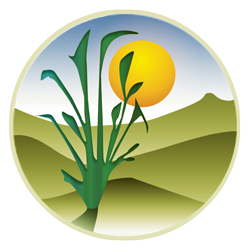The Roundtable is a venue for communication and discussion about the ecological, economic, and social complexities of rangeland sustainability, as well as interactions among these elements. A series of research, education, and extension efforts continues to evolve to provide useful data and materials to inform management, assessment, dialogue and decision-making at levels ranging from the ranch to regional and national scales. Advancing SRR requires a diverse cross section of participants including private individuals, conservation organizations, land trusts, tribes, state and local governments and corporate and private landowners.
We welcome your involvement and input through participation in SRR meetings, work groups, or listserv discussions. For more information please use the contact info on the contact us page to get in touch with us!
Ways to get involved with SRR:
Participating Organizations (Not Yet Complete)
American Farm Bureau
American Sheep Association
Arizona State University
Boulder County Parks & Open Space
Bradley University
Bureau of Indian Affairs
Bureau of Land Management
Chippewa Cree Tribe
Colorado State University
Confederated Tribes of Warm Springs
Eastern Oregon Agricultural Research Center
Ecological Society of America
Economic Research Service
Environmental Protection Agency
Environmental Science, Policy, and Management
Forest Service
Gray Ranch and Malpai Borderlands Group
High Plains Grasslands Research Station
Hopi Tribe
Idaho Conservation League
Invasive Species Advisory Committee
Lady Bird Johnson Wildflower Center
Montana State University
NACO (National Association of Counties)
National Association of State Foresters (NASF)
National Cattleman’s Beef Association
National Park Service
National Public Lands Council
National Wildlife Federation
New Mexico State University
Northern Great Plains Research Laboratory
Oak Ridge National Laboratory
Oklahoma State University
Pacific Northwest National Lab
San Antonio Water System
Society for Range Management
South Dakota State University
Southern Plains Range Research Station
Texas A&M University
The H. John Heinz III Center for Science, Economics and the Environment
The Nature Conservancy
The Quivira Coalition
University of Arizona
University of California
University of Colorado
University of Idaho
University of Nevada
US Department of Agriculture
US Department of the Interior
US Fish and Wildlife
US Geological Survey
Utah State University
Washington State University
Western States Land Commissioners
World Wildlife Fund
Wyoming State Grazing Board
